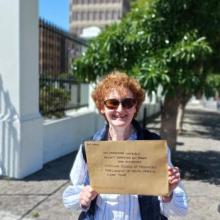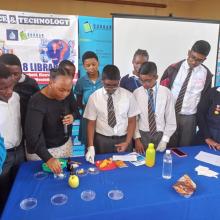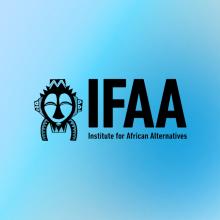In 2001, EIFL helped to create the South African National Library and Information Consortium (SANLiC), which licenses e-resources to libraries in higher education and national research institutions in South Africa. From 2004 - 2015, EIFL partnered with SANLiC to provide access to a wide range of scholarly e-resources. Libraries in South Africa also benefited from EIFL programmes on open access, copyright and innovation in public libraries.
EIFL supported the first open access conference in South Africa in 2004, which was co-hosted by EIFL, Open Society Institute (OSI) and SANLiC. We also supported the first institutional repository workshop in 2005.
In 2011, EIFL supported Masiphumelele Public Library, located in an impoverished informal settlement near Cape Town, to address community unemployment issues by introducing innovative new library services for youth.
Through the project, the Right to Research in Africa, EIFL engages in copyright reform in partnership with local advocates in South Africa. As a result, the Copyright Amendment Bill [B13D - 2017] contains provisions that support education and research in the digital age and, if adopted, will enable libraries to preserve South African creative expression for future generations. The Bill also includes provisions implementing the Marrakesh Treaty for persons with print disabilities.
In 2024 EIFL awarded grants to six institutions to improve the quality and sustainability of no-fee (Diamond) open access journals -
- The Academy of Science of South Africa (ASSAf) to enhance excellence of the South African Journal of Science.
- African Minds Trust to create a sustainable no-fee open access future for the Journal of Student Affairs in Africa (JSAA).
- LINK Centre to strengthen the African Journal of Information and Communication (AJIC).
- The National Association for Clean Air to enhance the discoverability, visibility and impact of Clean Air Journal.
- The School of the Arts at the University of Pretoria to enhance and strengthen the reputation of its online journal, Image & Text.
- The University of Johannesburg to address challenges to the growth and impact of the Journal of Construction Project Management and Innovation (JCPMI).
In 2025 EIFL awarded grants to -
- The Institute for African Alternatives (IFAA) for a project to improve the quality and sustainability of its flagship Diamond open access journal, New Agenda, and
- The African Centre for the Constructive Resolution of Disputes (ACCORD) to enable the African Journal on Conflict Resolution to navigate a publishing landscape that is increasingly being influenced by large language models and artificial intelligence (AI); to build capacity of its editorial staff, and to sustain visibility through hosting on a public journal management system.
These grants (2024 and 2025) were among 33 awarded through a three-year project to strengthen no-fee open access publishing in Africa.




